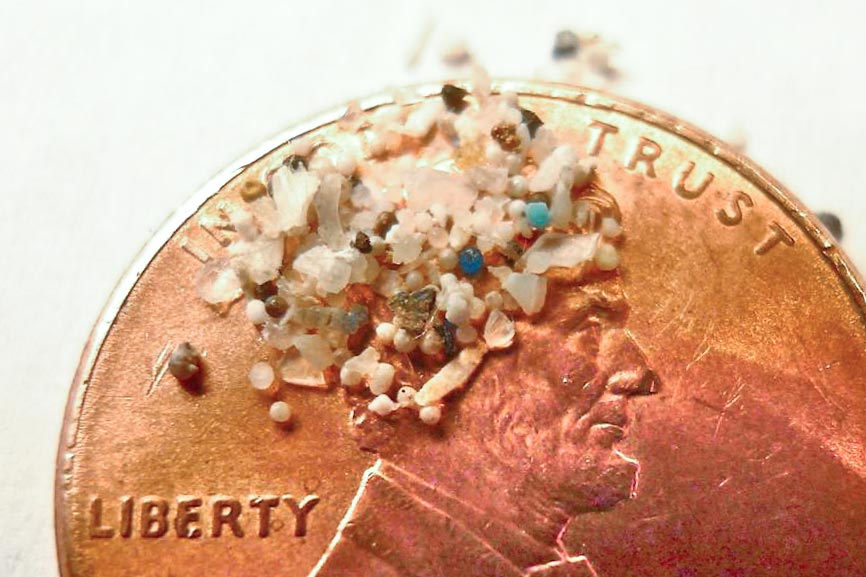Plastic pollution is a plague on our earth and in our waters. Americans alone discard more than 30 million tons of plastic a year — and only 8% of it gets recycled. The rest ends up in landfills, is burned, or becomes litter. An estimated 5 – 12 million tons of plastic pollution flows into our oceans each year, choking wildlife and leaching toxic chemicals into the food chain that lead to disease and death.
Plastic debris can come in all shapes and sizes, but those that are less than five millimeters in length (or about the size of a sesame seed) are called “microplastics.” Microplastics come from a variety of sources, including from larger plastic debris that degrades into smaller and smaller pieces. In addition, microbeads, a type of microplastic, are very tiny pieces of manufactured plastic that are added as exfoliants to health and beauty products. These tiny particles easily pass through water filtration systems and end up in our waterways, posing a threat to aquatic life and entering the food web. You can learn more about the science of microplastic pollution from the Consortium’s own Dr. Sherri Mason.

But do we have adequate recycling systems to tackle this colossal plastic pollution problem? Much of the world has grappled with a lack of investment in waste management infrastructure for too long. Our rivers, lakes, and oceans are filled with toxic plastic, choking, poisoning, and killing marine and human life.
Industrialized countries are no stranger to plastic pollution and the United States was listed among the top 20 plastic polluters. Thankfully, we have Waterkeeper Organizations like those in California who have successfully advocated for a ban on plastic bags. We need more efforts like this to reduce our consumption of plastic.
In addition to advocating for single-use plastic reduction and investment in waste management, Waterkeepers around the world are finding productive ways to motivate their communities to clean up and prevent the plastic mess that litters our waterways.
Waterkeeper groups around the world are working together to make a difference to keep plastic pollution out of our oceans. You too can make a difference. Join us at waterkeeper.org/get-involved. And remember to reduce, reuse, and recycle.
